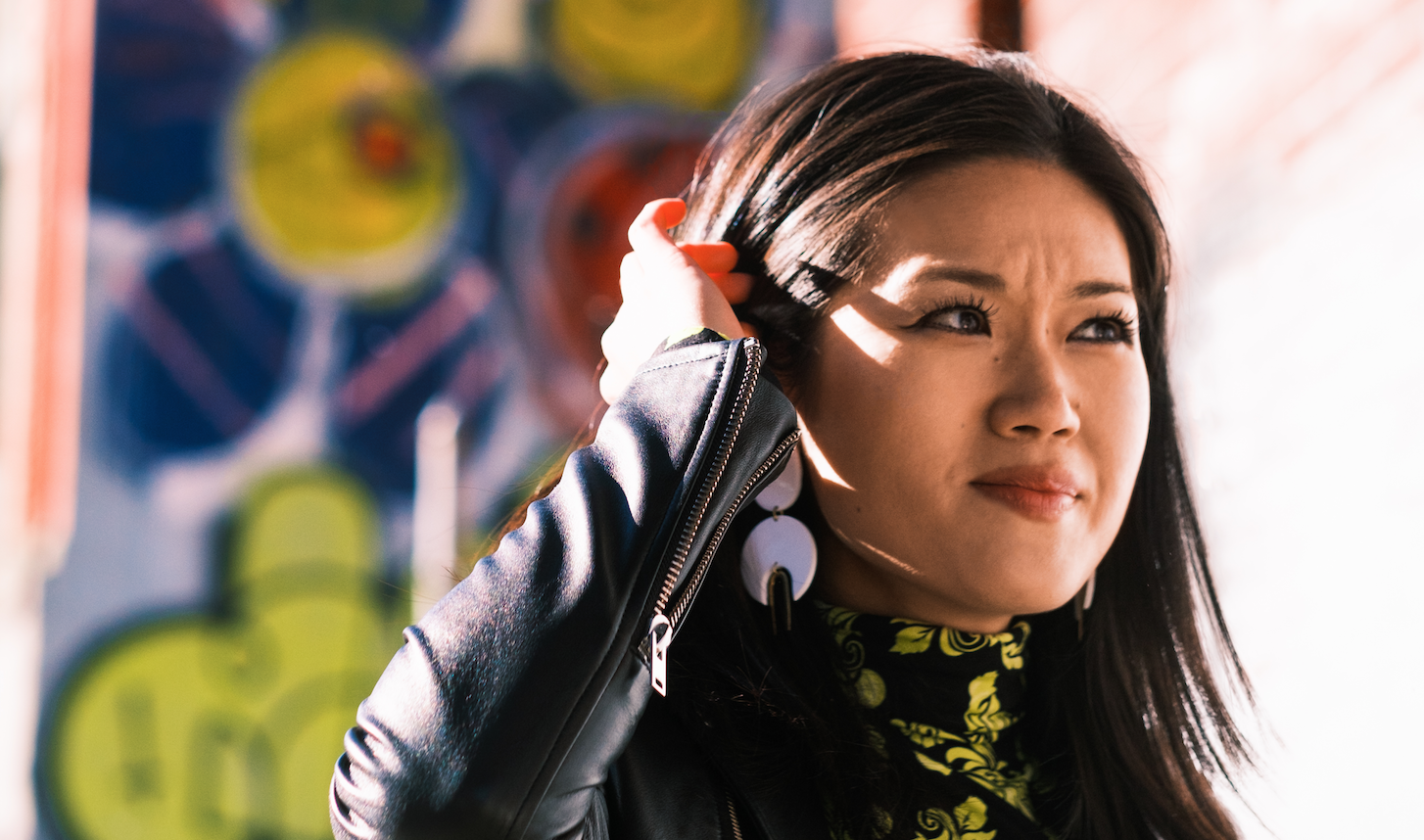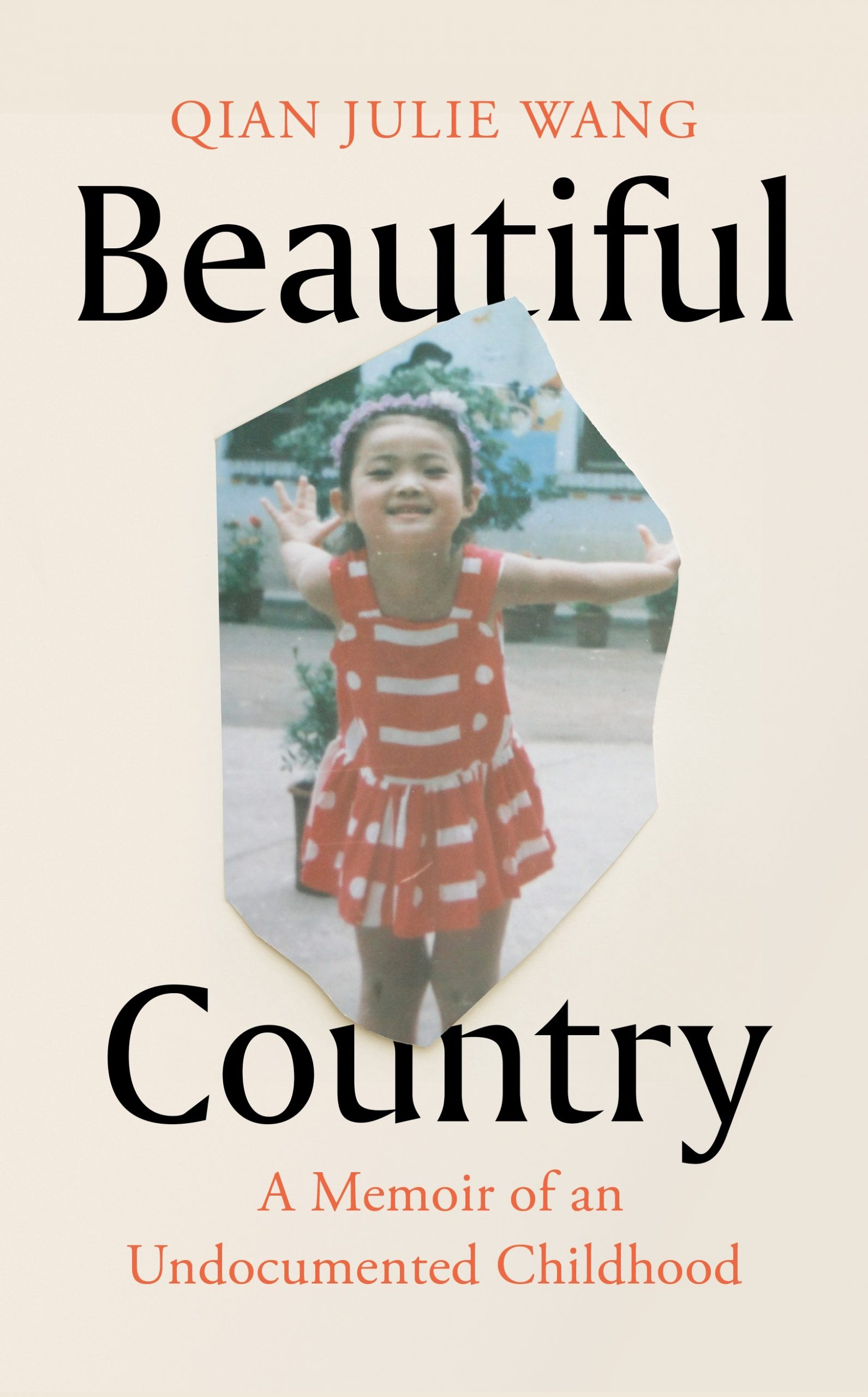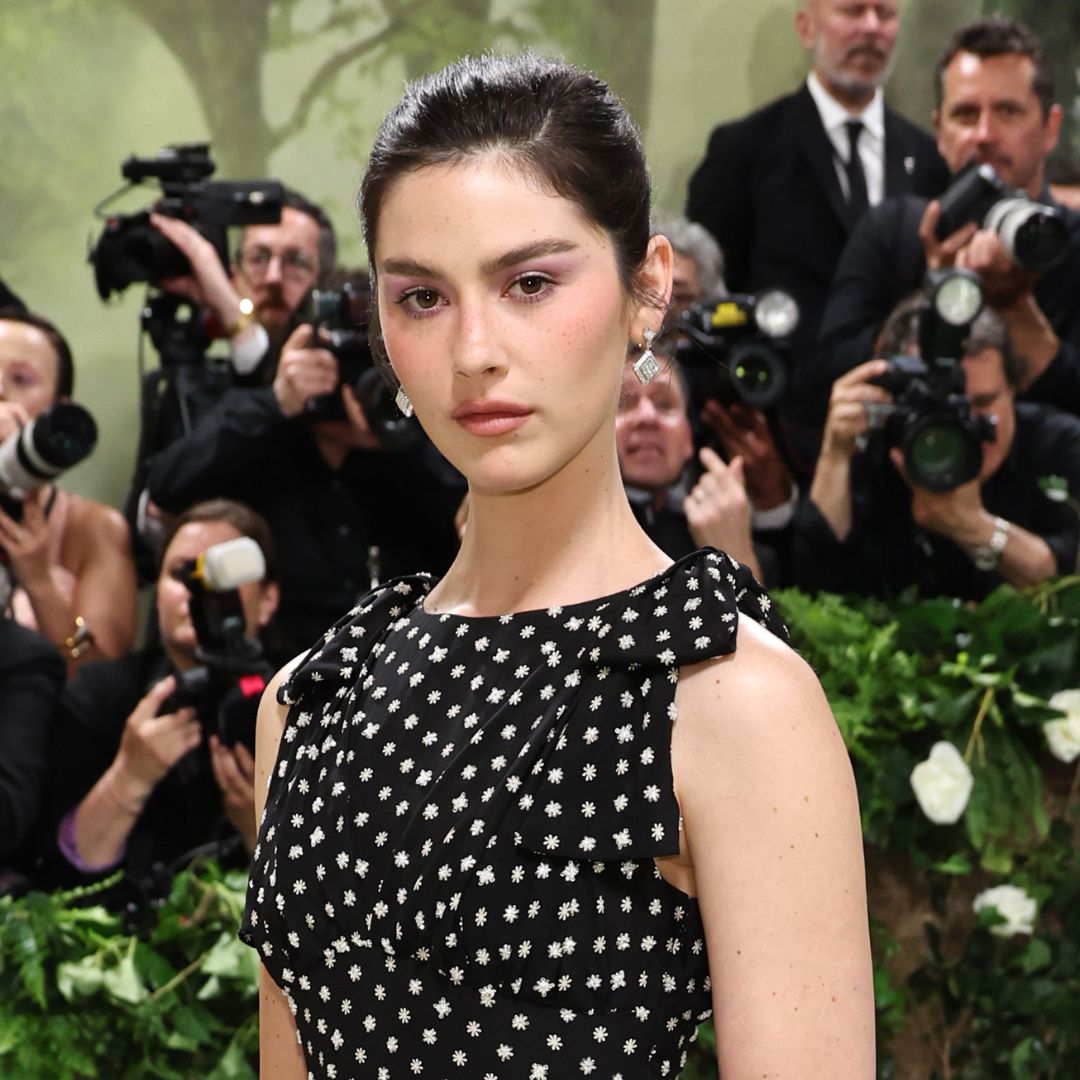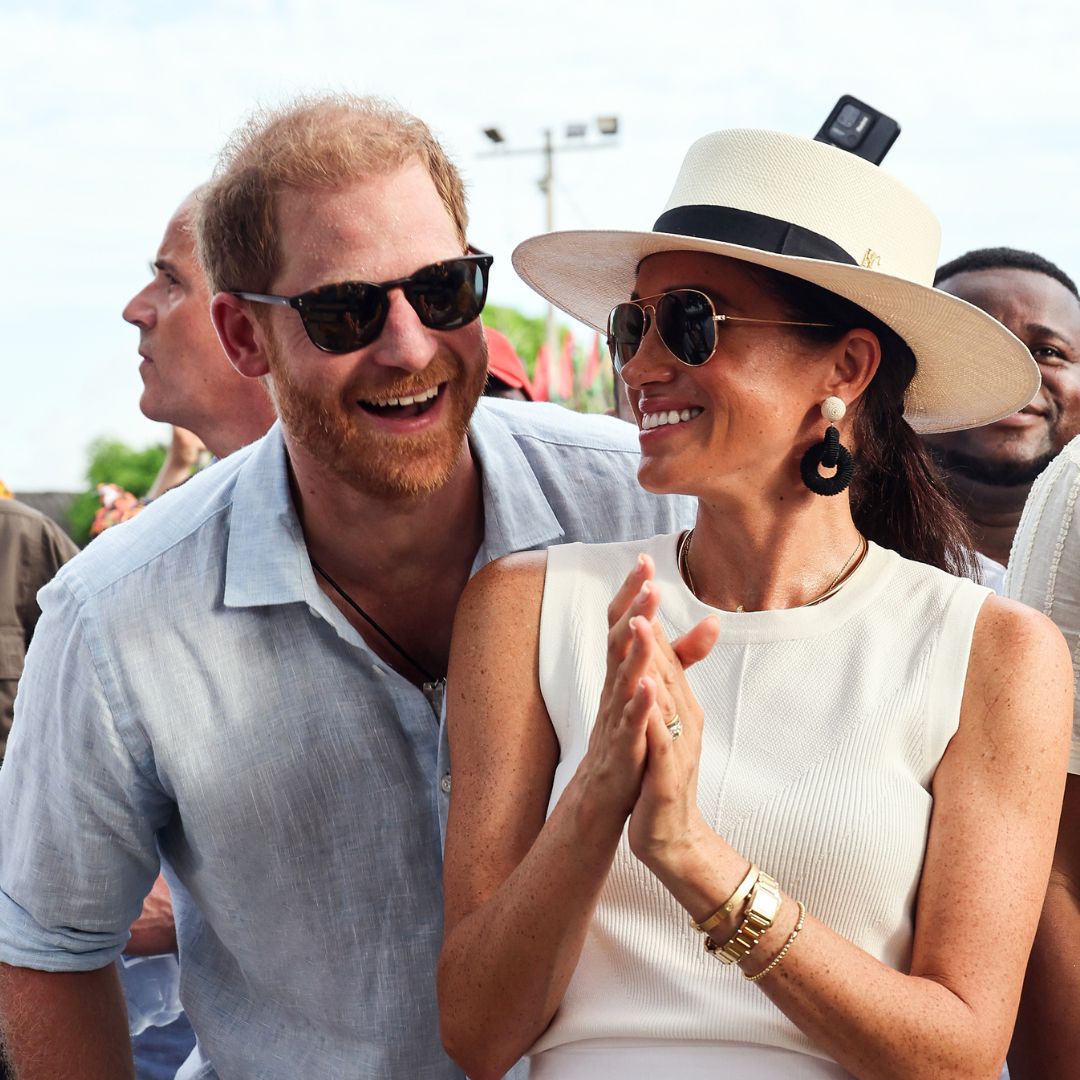Qian Julie Wang on her undocumented childhood, the salvation of reading and her powerful new memoir
Features Editor Jenny Proudfoot sits down with Qian Julie Wang for MC Book Club to talk memoirs, Middlemarch and the release of Beautiful Country…


Features Editor Jenny Proudfoot sits down with Qian Julie Wang for MC Book Club to talk memoirs, Middlemarch and the release of Beautiful Country…
You may not know the name Qian Julie Wang just yet, but you're certainly about to, with her debut memoir undeniably being the must-read book of 2021.
Beautiful Country follows Qian Julie’s 1994 move from China to America (the ‘Beautiful Country’) where she lived an undocumented childhood under the constant threat of deportation.
Now a managing partner of a law firm dedicated to advocating for civil rights, Qian Julie is lending her voice to those in need. And after years of living in secret, she finally wants to tell her story.
'I just felt like the secret was no longer mine to keep,' Qian Julie told MC Book Club. 'I owed it to everyone else out there that is still struggling with the very same issues that I feel deep in my body to share my experiences.'
As of this month, Beautiful Country has been released and it has unsurprisingly become an instant bestseller.
MC Features Editor Jenny Proudfoot named Beautiful Country her favourite book she had ever read, and so sat down with the wonderful Qian Julie Wang to talk memoirs, the shame in secrets and the salvation of reading...
Marie Claire Newsletter
Celebrity news, beauty, fashion advice, and fascinating features, delivered straight to your inbox!

Did you always know you wanted to tell your story?
I always wanted to share my story, even when I wasn’t talking about the past and didn’t tell anyone that I was undocumented. I always felt that I had this story burning inside me and it was frustrating to have it pent up in there. It was growing inside me and gnawing at my consciousness, so I think it needed to take this long for this book to come out and if I waited longer, it probably would have come out in a different form.
What was it that finally prompted you to write your memoir?
I didn’t decide to actually go forward with a book in real form until the 2016 election. I had become a citizen six months before then, and during the naturalisation ceremony, they put on the projector a video from President Obama and he opened with, ‘Greetings fellow Americans’. Those three words just completely unmoored me. I didn’t realise until that moment how much I needed to hear myself being called American. I had become American so very long ago but that term had always been denied to me, and to hear it coming out of the mouth of the President of the United States just shook something in me. Then in the six months thereafter, with all of the debates leading up to the election of undocumented immigrants being almost sub human, I found that I was receiving that messaging from a different place for the first time in my life. For the first time I felt that I had an immense privilege and responsibility to speak up because there were so many people still who didn’t have that choice. So I just felt like the secret was no longer mine to keep and that I owed it to everyone else out there that is still struggling with the very same issues that I feel deep in my body to share my experiences.
How do you start a project like that?
It took a lot of time because I hadn’t talked or thought about it for so long. I went into therapy and everyone that’s ever been into therapy knows that it’s completely earth shattering. You come out of the first session and you wonder if you’re buying this bagel for breakfast because of something that happened to you at nine years old. It just took me a lot of time to process and digest the immensity of everything that happened and also how much hold it still had on me. I mean, it almost dictated every single choice I made because I was still living in survival mode and this fear of being hungry, caught and in the spotlight. So, once all of that had happened, I had to force myself to start writing.
Talk me through your writing process…
It was very difficult, so I just gave myself a rule. As long as I was on my subway commute to work, I would have my phone out on my notes app and I would just type. I wouldn’t second guess myself and I wouldn’t stop to think about what would happen if my parents or the world read it. I had to force myself to cut that out and just get the story down on the page. I told myself that at the very least I would have it out even if I didn’t send it off for publication. I would have it for my grandchildren, and it would relieve some of this pent up need to tell this story.
It must have been challenging...
It wasn’t easy so I started with happier memories like eating pizza, discovering cheese for the first time, finding my favourite books and getting my cat. Then that kind of put a foot in the door to access the more difficult and painful memories. When I got to those, I became this kind of crazy woman sobbing into her phone on her public commute. I was working full time at a major law firm and I think the lack of time really helped me because I had this dedicated pocket of time in my day where I was just writing without editing. It forced me to get it out in a way that reading it back is incredibly raw and honest. If I had sat in front of a computer I don’t think it would have come out that way.
Was it cathartic to let go of the fear around telling your story?
Absolutely. I feel that the act of writing the book in itself without even submitting it for publication was transformative. It allowed me to heal because I was revisiting the past with my childhood self but also seeing it through an adult lens. And that’s essentially what you do in therapy - you re-parent yourself. What would you do if you were there with your childhood self? What would you tell that child? And in living through that process, I feel that I have healed a lot of those wounds that had stayed opened for decades. Those scars are always going to be there for sure and I will still have moments of irrational fear. I went to go get my COVID vaccine recently and the first thing they ask before they let you in the door is to see your legal ID. In the moment I felt an impulse to turn around and run away and I don’t know that any amount of healing, processing and writing can ever fully get rid of that urge, but I was able to fully recognise where it came from, and know that that is a different reality from the one I’m living in.
What did you learn through writing your memoir?
It really helped me to understand my parents and find empathy for them. For so much of my adulthood and my teenage years I blamed my father for a lot of what happened. I felt like he had made really bad decisions - we only came here because of him, my life was pretty good before coming here and I just saw him as a source of chaos. But revisiting those years and seeing what it must have been like for him - to be a man and feel responsible for two women who didn’t know English as well as he did and not be able to protect them. It must have been so incredibly painful and I see it now in him - the guilt and shame he still carries. So, I’ve actually got to know myself better over the course of writing this book and I’ve learned so much about my parents - even beyond what they’ve shared with me. I am just able now to step into their shoes and see those years from their viewpoint.
Did you recount everything from memory or did you document your experiences as you grew up?
I documented a lot. I was very inspired by the book Harriet the Spy and I had loads of notebooks and diaries where I would write down mundane details - things like that my classmate ate a strawberry shortcake popsicle every day after school. I just thought that if I wrote down all of these boring details, maybe one day I could solve some kind of major mystery that was in my world that never materialised. But then looking back I was like, “Oh thank you little child for writing all of this because now I remember”. It gave me so much insight into how much storytelling, books and narrative kept me alive and hopeful during those years. I always felt like I had a mission in life to solve some mystery and to write things down.
What role has reading played in your life?
It’s been my salvation. I internalised so early on how important literacy was. As I mentioned, my father was an English professor in China and we were always surrounded by books. My dad was always reading - either poetry, long-form novels or newspapers - so there were words all around me. And when I got here he said, “If you speak perfect English no one will ever suspect that you’re an immigrant, much less that you’re undocumented”, so the power of language was drilled into me. Of course it was in a different way than he intended, but as I set upon becoming a fully native speaker, I just fell in love with all of the stories. Books are so powerful because they give you insight into worlds that you don’t necessarily have access to. And for me, it was what it was like to be a normal American kid. I loved Babysitter’s Club and Sweet Valley High for that reason only - just that these people were living completely different lives than I was but not very far from me and in the same country. And to this day, I still have a soft spot in my heart for Connecticut and California because of those series. Then as I got older, I just fell in love with literature. I read Middlemarch by George Eliot probably at age 14 - way too early. I didn’t understand most of it, but I’ve reread it five or six times since and every time I reread any good book, I find new things that I take away from it. I find that these characters grow with me, and for a child who had to move around a lot and who didn’t have siblings or cousins, it feels like these people really are my family. They are my stead-fast companions and no matter where I go they’ll be right there waiting for me.
What book has had the biggest impact on you in life?
There’s a quote from Middlemarch that has stayed with me and grown with me since I first read it in early high school. “For the growing good of the world is partly dependent on unhistoric acts; and that things are not so ill with you and me as they might have been, is half owing to the number who lived faithfully a hidden life, and rest in unvisited tombs.” So, the point being that it’s the daily lives of people that we don’t know and small everyday kindness that matters in changing the world. For a young teen who didn’t have much power or a platform, I felt that that gave me agency. Because every little thing I did could make the world better, whether it be just being nice to someone on the street or helping out an elderly person when I see them struggle in public. And as I have gotten older and had more tools at my disposal, that quote has never left me. I am fortunate enough to have a profession where I can affect the public good I hope, but it still stays with me that what I do in everyday life outside the courtroom and my office, matters just as much, if not more. It has given me a path to integrity - to be that same person no matter where you are and being driven by that same mission.
Is there a book that you’ve particularly enjoyed recently?
I read Detransition Baby and I absolutely loved it. It gave me insight into a world that I don’t readily have access to. It made me so aware of all of the privileges that I have and have taken for granted and never even thought about - just the feeling of being comfortable in your own body. Not to mention, the plot and the characters are so fully developed and vivid. I was just along for both the educational and eye opening value as much as for the entertainment, so I just think that Torey Peters is immensely talented and I’m really excited to see what she does next.
Will you write more books in the future or was it just this story that you needed to tell?
Oh I love writing. I shied away from it because I didn’t believe I could ever finish a book, so now that I have proved myself wrong, I’m just getting started. Maybe we’ve created a monster! I have started a second book - it’s a novel that’s set within a law firm so it kind of picks up on my adult experiences - as a lawyer, as a woman of colour, as an immigrant - but also I’m hoping will be more fun because there will be more humour and drama in it. I would eventually love to return to writing a memoir that picks up from this first book. I would want it to be more of an emotional memoir about the relationship between me and my mother as I grew up into adulthood and how our dynamics have shifted and very much stayed the same over the years.
Do you hope that your memoir will help other people to speak out?
Absolutely, even if they don’t do so in the public sphere. The act of keeping something private and secret, as I talk about towards the end of the book, imbues in you subconsciously a sense of shame. And that shame can cripple what you believe you are capable of - it can cripple the direction that your life takes.
Beautiful Country shines a light on the undocumented community - what message do you hope people will take?
It’s funny because I never conceived of my book as a message. I conceived it as a train ride through a different landscape - a landscape that is harder to get the keys to. So I think what I would love for people to take away when they disembark that train is that we are not that different. I myself have even been shocked by how many readers have reached out to me who have never immigrated. They have come from completely different places in life but reached out to say they related so much to the moments of childhood, discovery and fear that are documented in this book. That has been really liberating and empowering to me - to know that the shame and the experiences that I thought were singularly mine because of this ugly legal mark on our life are actually very common.
Is there an action that you hope readers will take from the book?
I would hope that readers think about childhood and how much of a hold it still has on us as adults. To not only take from that a need to revisit and repair their childhood selves but also think about how they are speaking to children. To think about how our education system is treating children and what marks that might leave in the long term on those people as they grow up, and on our society. I think that if we can treat children better, if we can learn to value them and their fierce resilience and vulnerability, our society will evolve into a much better thing than it is right now.
Beautiful Country by Qian Julie Wang is available to buy now.

Jenny Proudfoot is an award-winning journalist, specialising in lifestyle, culture, entertainment, international development and politics. She has worked at Marie Claire UK for seven years, rising from intern to Features Editor and is now the most published Marie Claire writer of all time. She was made a 30 under 30 award-winner last year and named a rising star in journalism by the Professional Publishers Association.


